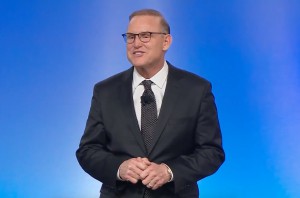
The National Auto Dealers Association, led by Chairman Wes Lutz, applauded the reversal of CFPB guidance over potentially discriminatory lending practices.
The U.S. House of Representatives is expected to take up a measure passed by the Senate on Wednesday that wiped out guidance from the Consumer Financial Protection Bureau designed to eliminate lenders from discriminating against auto buyers based on race or national origin.
The guidance, which was offered in 2013 by the Obama Administration, was considered controversial at the time and faced fierce opposition from Republicans as well as banks, lenders and finance companies.
The Senate asked the General Accounting Office to era to review whether or not the guidance, which was aimed at preventing auto lenders from charging borrowers higher rates based on factors such as race or national origin, should have been subject to Congressional review.
In December, the GAO said it should have been, allowing the Senate to begin the process of reversing the action. It voted 51 to 47, with Joe Manchin (D-West Virginia) being the lone senator to break with his party.
(Auto dealers cheer CFPB ruling. Click Here for the story.)
“An ill-advised Obama-era auto-lending rule issued by the CFPB missed the mark on both process and substance,” Republican Senator Jerry Moran, who sponsored the disapproval resolution, said.
The measure now goes to the House, which is expected to pass it, and on to President Donald Trump, who is expected to sign it. The guidance was designed to hold lenders that offer auto loans through dealerships accountable for any discriminatory pricing based on factors such as race, religion, sex or national origin.
“S.J.Res. 57 continues the bipartisan effort that began years ago to preserve the ability of local dealerships to offer discounted auto loans to their customers, and Sen. Moran is to be commended for his leadership on this issue,” said the National Automobile Dealers Association in a statement.
“S.J.Res. 57 is a narrowly-tailored joint resolution that does not amend or change any fair credit law or regulation or impair their enforcement. The legislation is a measured response to the CFPB’s attempt to regulate the $1.1 trillion auto financing market, avoid congressional scrutiny by issuing “guidance,” and impose a new policy without necessary procedural safeguards.”
The guidance stemmed from complaints received from consumers about dealer mark-ups, additional interest auto dealers charged for loans they originate for third-party lenders and other practices. It’s a problem because dealers can receive compensation from the lenders if they manage to charge the borrowers a higher rate, but the CFPB has warned the practice could result in illegal discrimination.
(Click Here for more about auto dealers rejecting a federal plan for a single interest rate.)
Critics argued that the compliance cost has been a burden for financial institutions, that metrics used by the CFPB to determine discrimination were flawed and that the agency does not have authority to regulate loans issued by dealerships.
However, the ruling by the GAO could result in a much bigger problem: Republicans could examine other agency actions from the past that weren’t submitted to Congress as formal rules either by asking the GAO to extend its ruling those actions.
Democrats and consumer advocates are concerned the ruling has set a dangerous precedent that could put previous actions at risk and have a lasting impact on how agencies determine rules.
(To see more about the $21.9 million Toyota paid to settle discriminatory loans, Click Here.)
“They can go back 20 years,” Sen. Sherrod Brown of Ohio, the top Democrat on the Senate Banking Committee, told Politco.

Am I understanding this correctly in that the striking down of the rule reopens the gates for discriminatory / predatory lending practices?
Apparently, YEP!